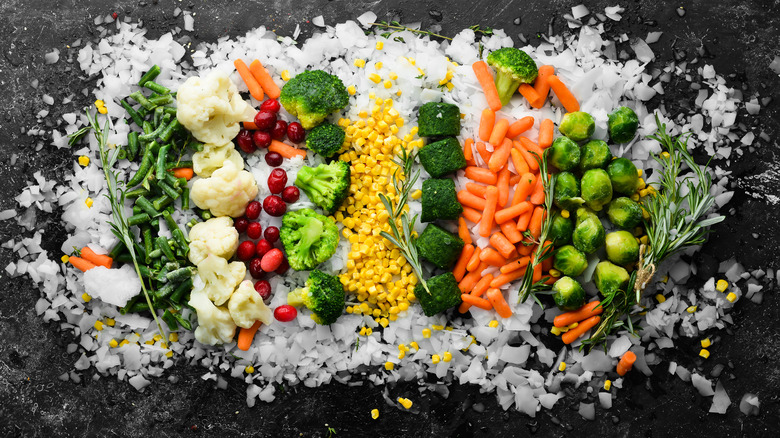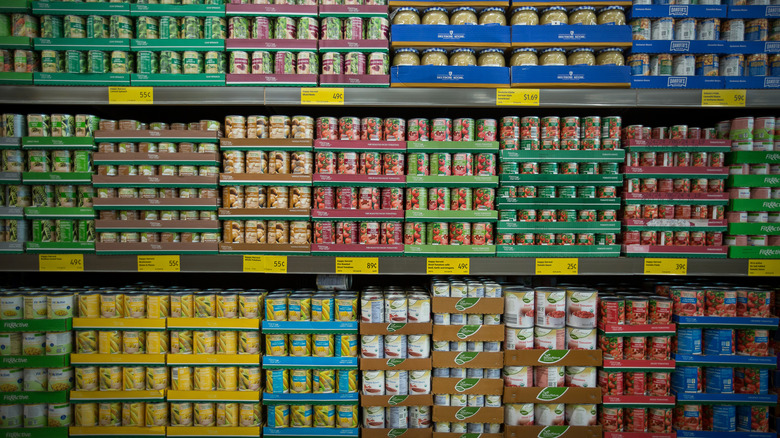Are Canned Or Frozen Veggies Closest To Fresh?
With food prices on the rise, it may feel harder to keep the refrigerator stocked with healthy foods like fresh meat and produce. Luckily it's not impossible to eat healthy while watching your budget. There are many alternatives to fresh fruits and vegetables, which can go bad before you've gotten to eat them, but still provide necessary nutrients. Many people wonder if canned or frozen vegetables are as healthy as their fresh counterparts and which ones are closer to the real deal?
The good news is according to the National Kidney Foundation of Hawaii, there is no wrong choice. As long as you are getting produce in your diet, the differences between fresh, canned, and frozen options is largely negligible. However, there are some factors to take into consideration. For instance, as Pure Wow notes, canned vegetables can potentially contain more additives like sugar or sodium to preserve their flavor, which can be an issue for people with strict dietary needs. However, canned produce often tends to be less expensive than either fresh or frozen options, and can be rinsed to eliminate some of the extra add-ins, so it could still be the smarter option for some households.
Additionally, both canned and frozen vegetables last longer than fresh produce, so unless you can guarantee you're only buying what you can use quickly, both the preserved options can save extra money and prevent food waste.
All about nutrients
The true benefit of fresh produce is its high nutrient content. As Better Health explains, fruits and vegetables are high in fiber, vitamins A, C, and E, as well as minerals like zinc, magnesium, and phosphorus all while being low in fat, sodium, and sugar. In order to take full advantage of this, it's best to eat produce at its freshest, when its nutrient content is at its peak.
This is another edge for frozen vegetables. While they may not retain all the nutrients and flavor of fresh vegetables, The National Kidney Institute of Hawaii reports that frozen vegetables lose less of their nutrients than canned vegetables because they are only blanched before being flash-frozen, whereas canned fruits and vegetables need to be processed more to kill off any potential bacteria. The more processing and cooking the food undergoes, the more nutrients are destroyed. However, this does not mean fresh produce is always superior. In fact, Eating Well notes that there are some instances where frozen or canned foods may actually be more nutritious since they were picked and preserved at their peak nutrition point instead of being shipped fresh. The shipping time means some foods either get picked prematurely to hit shelves while still fresh or can be wilted by the time they arrive in stores.
No matter your reasons, whether dietary or budgetary, keep in mind that eating fruits and vegetables in any form is always preferable to not having them in your diet.

